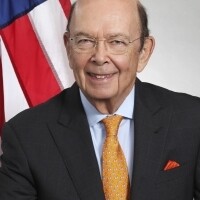hankyoreh
Links to other country sites 다른 나라 사이트 링크
South Korean power transformer exporters hit with heavy duties in antidumping judgment

The US Department of Commerce dropped a duty bomb in its final antidumping judgment against large South Korean power transformers, raising the rate by twenty times over the preliminary review judgment.
Observers are seeing the South Korean transformers as suffering the opening blast in the new trade protection policies of President Donald Trump, who has repeated called for protection of US industry through a “buy American” approach.
According to accounts on Mar. 9 from the Korea International Trade Association (KITA) and related businesses, the US Department of Commerce recently finalized a 61% antidumping duty against Hyundai Heavy Industries’s medium- to large-size transformers (60 MVA and over). In a preliminary judgment last September, the department decided on antidumping duties of 3.09% for Hyundai Heavy Industries, 2.43% for Iljin Electric, and 1.76% for Hyosung. The final ruling means a twenty-fold increase in the antidumping duty rate for Hyundai Industries. Hyosung and Iljin Electric were each assessed rates of 2.99%.
Under the antidumping duty system, companies that cause damage to industries in a country by exporting items below the market price for exporting countries are assessed a duty (antidumping margin) equivalent to the price difference.
The antidumping margin (duty) is often adjusted between the preliminary and final judgment. In an antidumping investigation last year on cold rolled carbon steel sheets, the duty rate assessed against Hyundai Steel was much larger in the final judgment (34.3%) than in the preliminary one (2.17%).
But it is considered highly unusual for a duty rate to be raised in an annual review, which is held every year to examine its suitability. Indeed, it has been something of unwritten rule that duty rates are always lowered in the reviews.
“Usually, there is a difference in the antidumping margin rate between the preliminary and final judgments, but there’s no precedent for the twenty-fold [difference] we were hit with this time,” said a KITA source.
The transformer decision could be the opening salvo in the Commerce Department pushing its “America first” agenda with serious import regulations on South Korean products.
“In the case of large transformers, Hyundai Heavy Industries has a dominant share of the global market. The multinational ABB and US transformer manufacturers like Delta Star and Pennsylvania Transformer Technology have been trying to keep Hyundai in check,” said a source with one transformer production company.
The antidumping case began in 2011 when transformer manufacturers in the US filed a complaint against South Korean exporting businesses. The US Commerce Department and International Trade Commission (ITC) launched an investigation before issuing a final judgment in 2012 with antidumping duties of 14.95% against Hyundai Heavy Industries, 29.04% against Hyosung, and 22% each against Iljin Electric and LS Industrial Systems. The existing decisions have been revised in annual reviews since 2013, with rates lowered every time; in the Sep. 2016 review, they were reduced to 3.09% against Hyundai Heavy Industries, 1.76% against Hyosung, and 2.43% against Iljin Electric.
But with the Trump administration arriving in office, the companies were blindsided with a major blow.
Transformer exports to the US by South Korean companies amount to US$200 billion a year, or around 230 billion won.
“It’s incomprehensible. We plan to raise objections and file a complaint with US Court of International Trade,” Hyundai Heavy Industries said.
By Cho Kye-wan, staff reporter
Please direct questions or comments to [english@hani.co.kr]

Editorial・opinion
![[Column] Has Korea, too, crossed the Rubicon on China? [Column] Has Korea, too, crossed the Rubicon on China?](https://flexible.img.hani.co.kr/flexible/normal/500/300/imgdb/original/2024/0419/9317135153409185.jpg) [Column] Has Korea, too, crossed the Rubicon on China?
[Column] Has Korea, too, crossed the Rubicon on China?![[Correspondent’s column] In Japan’s alliance with US, echoes of its past alliances with UK [Correspondent’s column] In Japan’s alliance with US, echoes of its past alliances with UK](https://flexible.img.hani.co.kr/flexible/normal/500/300/imgdb/original/2024/0419/2317135166563519.jpg) [Correspondent’s column] In Japan’s alliance with US, echoes of its past alliances with UK
[Correspondent’s column] In Japan’s alliance with US, echoes of its past alliances with UK- [Editorial] Does Yoon think the Korean public is wrong?
- [Editorial] As it bolsters its alliance with US, Japan must be accountable for past
- [Guest essay] Amending the Constitution is Yoon’s key to leaving office in public’s good graces
- [Editorial] 10 years on, lessons of Sewol tragedy must never be forgotten
- [Column] A death blow to Korea’s prosecutor politics
- [Correspondent’s column] The US and the end of Japanese pacifism
- [Guest essay] How Korea turned its trainee doctors into monsters
- [Guest essay] As someone who helped forge Seoul-Moscow ties, their status today troubles me
Most viewed articles
- 1[Column] The clock is ticking for Korea’s first lady
- 2Hong Se-hwa, voice for tolerance whose memoir of exile touched a chord, dies at 76
- 3After 2 months of delayed, denied medical care, Koreans worry worst may be yet to come
- 4[Column] Has Korea, too, crossed the Rubicon on China?
- 5[Correspondent’s column] In Japan’s alliance with US, echoes of its past alliances with UK
- 6US overtakes China as Korea’s top export market, prompting trade sanction jitters
- 7Samsung barricades office as unionized workers strike for better conditions
- 8All eyes on Xiaomi after it pulls off EV that Apple couldn’t
- 9More South Koreans, particularly the young, are leaving their religions
- 10John Linton, descendant of US missionaries and naturalized Korean citizen, to lead PPP’s reform effo